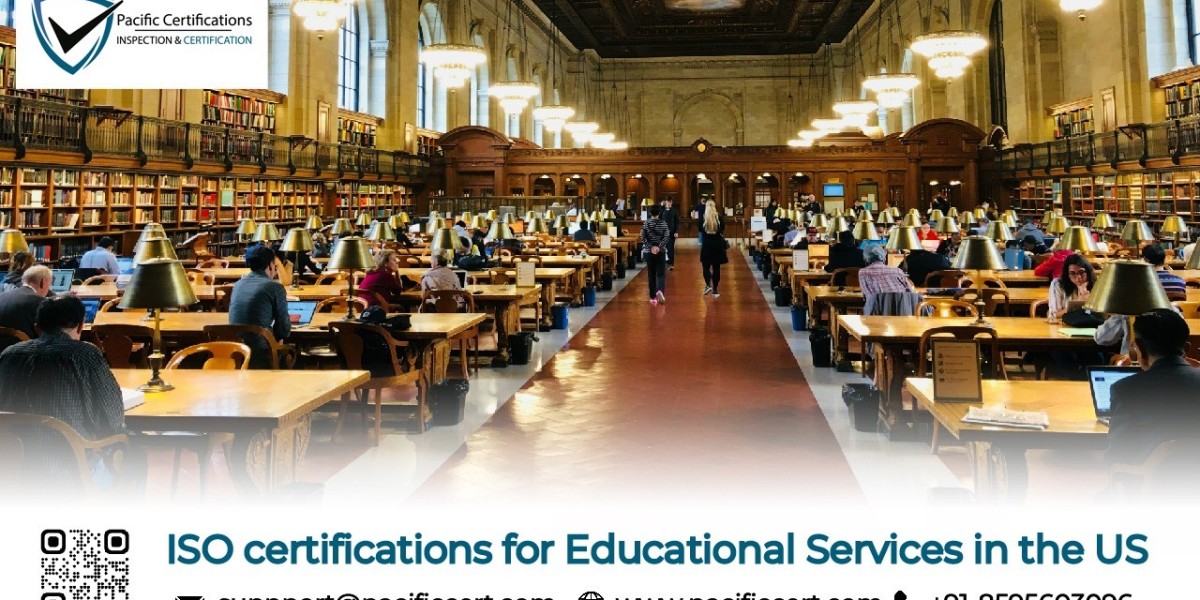In the rapidly evolving landscape of educational services in the United States, maintaining high standards of quality and efficiency is paramount. This is where ISO certifications come into play.
ISO certifications provide a structured framework for educational institutions to ensure they meet globally recognized standards. These certifications are not just about achieving compliance, they are about fostering a culture of continuous improvement, ensuring that institutions can provide the highest quality of education to their students.
Applicable ISO Standards for Educational Services
When it comes to educational services, several ISO standards cater to various aspects of an institution's operations, from quality management to information security, environmental management, and beyond. Here are some of the most applicable ISO standards for educational services in the US:
ISO 9001:2015 - Quality Management Systems
ISO 9001:2015 is perhaps the most widely recognized ISO standard globally. It outlines the criteria for a quality management system (QMS), ISO 9001:2015 helps in ensuring that their services consistently meet customer and regulatory requirements and that there is an ongoing effort to enhance customer satisfaction. Implementing ISO 9001 in educational services means improving the quality of teaching, administration, and student support services.
ISO 21001:2018 - Educational Organizations Management
ISO 21001:2018 is a specialized standard tailored specifically for educational organizations. This standard is designed to align educational services with international best practices, fostering excellence in the learning experience. It focuses on the unique needs of educational institutions, ensuring that they can cater effectively to diverse student needs, enhance student engagement, and improve overall learning outcomes.
ISO/IEC 27001:2022 - Information Security Management Systems
ISO/IEC 27001 provides a framework for implementing an information security management system (ISMS) that helps protect this information from threats such as cyber-attacks, breaches, and data loss.
ISO 14001:2015 - Environmental Management
Educational institutions have a role in promoting sustainability and environmental stewardship. ISO 14001:2015 provides a framework for organizations to manage their environmental responsibilities in a systematic manner that contributes to the environmental pillar of sustainability.
ISO 45001:2018 - Occupational Health and Safety Management Systems
The safety of staff and students is a top priority for any educational institution. ISO 45001:2018 provides a framework for managing occupational health and safety (OH&S) risks and improving overall safety performance.
If you are looking for ISO Certification for your company, contact us today at support@pacificcert.com.
Requirements for ISO Certification in Educational Services
Achieving ISO certification involves meeting specific requirements that vary depending on the standard. However, there are common steps and elements across all ISO certifications:
Leadership and Commitment
Top management must demonstrate leadership and commitment by integrating ISO standards into the organization's strategy and ensuring that resources are available for implementation.
Risk Management
Educational institutions must identify risks and opportunities that could affect their ability to meet objectives. This involves conducting regular risk assessments and implementing controls to mitigate risks, whether they pertain to quality, information security, environmental impact, or health and safety.
Documented Information
Maintaining documented information is critical for ISO certification. This includes policies, procedures, and records that demonstrate compliance with the standard.
Competence and Training
Educational services must ensure that all personnel involved in the management system are competent and adequately trained.
Internal Audits
Internal audits help assess the effectiveness of the management system, identify areas for improvement, and ensure compliance with the standard. Regular internal audits help educational institutions maintain the integrity of their management systems.
Management Review
Top management must regularly review the management system to ensure its continued suitability, adequacy, and effectiveness.
Continual Improvement
ISO standards emphasize the importance of continual improvement. Educational institutions must have processes in place to identify areas for improvement, implement corrective actions, and monitor the effectiveness of these actions.
External audit & certification
After your educational organization is compliant with the requirements of desired ISO certification, they must undergo a certification body audit, which involves stage-1: documentation review and stage-2, Implementation check audit.
After you meet with the requirements of the standard, you are issued an ISO certification, which is valid for a period of three years, with yearly renewable conditions.
Read More: ISO Certifications for Educational Services in the US, and How Pacific Certifications can help



